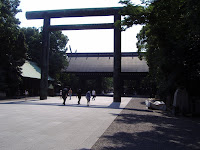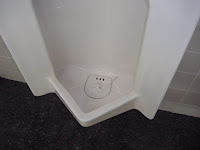ASEAN-U.S. meeting will be an important step to building stronger relations
Photo: AFP
In what is seen as a signal that Southeast Asia is still important to the U.S., President George W. Bush has invited the region’s leaders to his ranch in Texas for a barbeque — and presumably more substantive talks too.
Bush made this invitation on Sep 7 at the sidelines of the Asia Pacific Economic Cooperation (APEC) forum in Sydney, where leaders from 21 Asia-Pacific countries are gathered this week.
Many see Bush’s invitation as him making amends for skipping a high level summit with leaders of the 10-member Association of Southeast Asian Nations (ASEAN), which was to be held in Singapore just before the APEC meeting. The Jakarta Post reported that Indonesian Foreign Minister Hassan Wirayuda said Bush “wanted to prove that his postponement of (the) Singapore summit on the way to attend the APEC summit did not reduce the U.S. commitment to ASEAN”.
Just a few weeks earlier, Secretary of State Condoleezza Rice had, for the second time, skipped the ASEAN Regional Forum (ARF), a security meeting between ASEAN ministers and their U.S., Russian, Chinese and Japanese counterparts.
All these no-shows by senior U.S. officials were seen as a snub to the region. U.S. officials insisted that it was due to scheduling difficulties — on each of these occasions, the U.S. leaders made last minute detours to the Middle East to deal with pressing security problems there.
However, many ASEAN leaders are concerned that ASEAN is getting relegated lower and lower in U.S. foreign policy and trade priorities, as the situation in Iraq and Israel-Palestine take centre stage, while remaining U.S. attention in Asia is getting diverted to rising giants China and India.
Going to Big Brother’s house?
Bush’s invitation to the ASEAN leaders to meet him together at his ranch has evoked mixed reactions. Singapore Prime Minister Lee Hsien Loong described it as a “very good” move, with the government-controlled Straits Times boasting that Bush “reserves invitations to Texas as a diplomatic plum for close allies”[1].
Indonesian officials, however, were more cautious. They told The Jakarta Post that the location of the meeting in Texas could create the impression that “ASEAN leaders were ‘reporting back’ to a superior power”.[2]
Philippines President Gloria Arroyo was more circumspect. She told reporters that the meeting will be done “at the convenience” of ASEAN.
In most Asian family traditions, younger siblings are expected to visit the eldest sibling in his home during festive occasions like Chinese New Year and Hari Raya Aidilfitri (Eid ul-Fitr) — and not the other way around. While this protocol does not necessarily extend to international diplomacy, the cultural implications of Bush’s group invitation were probably lost on the President and his advisors.
The Myanmar Factor
Another reason for Bush and Rice skipping meetings with ASEAN could be because of the presence of Myanmar in the grouping. The Neo-cons in the Bush administration are understandably reluctant for their leaders to be seen sitting at the same table as the brutal military dictators who currently rule Myanmar. Hence, Bush’s latest invitation to the seven ASEAN leaders who were present at the APEC meeting could be a way for Bush to meet with just those countries he fancies, while excluding Myanmar, which the U.S. has been so openly critical about. Three ASEAN countries — Myanmar, Cambodia and Laos — are not APEC members.
In any case, the U.S. has a travel ban on leaders of the Myanmar junta and their family members. This makes it highly unlikely that it would allow any Myanmar leaders to attend the ASEAN-U.S. meeting in Texas. This could put ASEAN leaders in a quandary. ASEAN has up until now insisted on its principle that any meeting with ASEAN must include representatives from all its 10 member states. A previous ASEAN ministerial meeting with their European Union (EU) counterparts in The Netherlands got downgraded to “officials level” because the Dutch government refused to grant a visa to Myanmar’s Foreign Minister.
Whether ASEAN will insist on adhering to this principle this time around is unclear. Indonesian Foreign Minister Hassan Wirayuda told The Jakarta Post that ASEAN leaders would first have to discuss the practicalities of responding to Bush’s invitation before reaching a decision on whether or not to accept. However, Singapore, the current chair of ASEAN, has already promised to “coordinate a time for the meeting”.
Working Out the Practicalities of the Meeting
The practicalities of the ASEAN leaders’ meeting with Bush in Texas can and definitely should be worked out. For example, instead of naming it an ASEAN-U.S. meeting, it could be billed as a meeting between the U.S. president and several Southeast Asian leaders. Alternatively, the U.S. could allow a low level Myanmar official to represent Myanmar at the meeting, while extending invitations to the remaining ASEAN heads of government. In any case, top Myanmar junta leaders seldom travel out of the country except to seek medical treatment.
< span lang="EN-GB">
Much at stake with U.S.-ASEAN relations
For most pragmatists in ASEAN, the decision whether or not to proceed with the high level meeting with Bush (with or without Myanmar) is a no brainer. The U.S. is ASEAN’s biggest trading partner. Beyond trade, U.S. involvement in Southeast Asia is critical to maintaining the balance of power in East Asia. A rising China is actively courting ASEAN with its lucrative offers of increased trade and diplomatic links. While all ASEAN countries welcome China’s interest in the region, most of them would still prefer the U.S. to continue maintaining a strong presence in the region.
ASEAN leaders need to find a way to generate greater U.S. interest in the region. Likewise, the U.S. also needs to realise that much is at stake if they lose their focus on ASEAN, which is home to over half a billion people and is the fourth largest trading partner of the U.S.. The U.S. shares many concerns with ASEAN, from the long-running fight against terrorism to more recent concerns like environmental protection and bird flu.
It would be unfortunate if relations were held back because of the Myanmar millstone or U.S. pre-occupation with events in the Middle East. This proposed Texas retreat will be an important step in the right direction to build stronger relations between ASEAN and the U.S.. All parties will do well not to pass up this opportunity.
This article first appeared in OhmyNews International.






